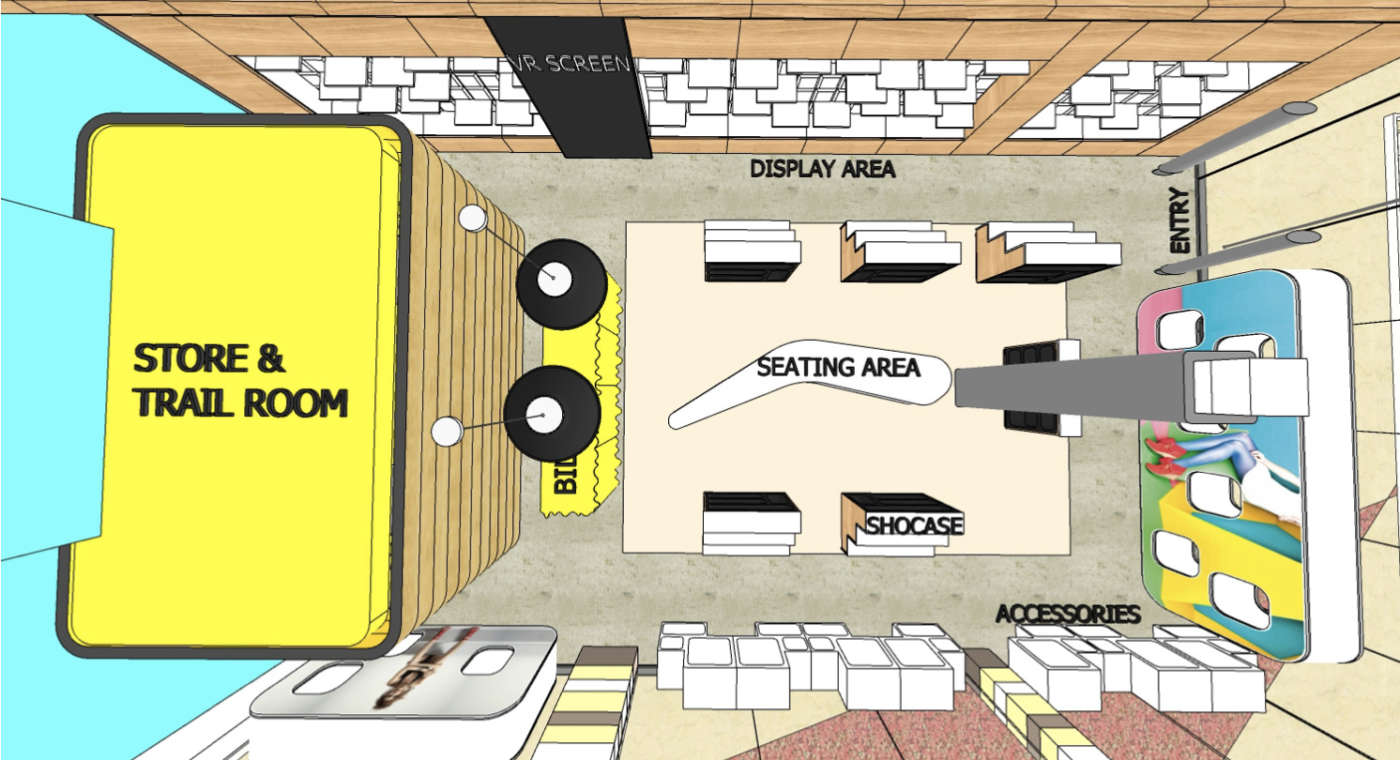- Università: SDA Bocconi Asia Center
- Docenti:
Sandro Castaldo
- Studenti:
Aarchi Chaturvedi, Ayesha Sultana, Ayush Sankhala, Gautham Raj Damisetti, Misal Madhav, Pragya Pradhan
The one-stop-shop for all and any sustainable/eco-friendly clothing and accessories provided by established and small brands.
The whole retail store is equipped with smart technology that aids in energy conservation along with eco- friendly plant able shopping bags and price tags. For a unique customer experience, it invites customers to bring in an unwanted item of clothing in exchange for a virtual fitting room. They get to try our unique augmented reality interface that enables them to on a digital item from our exclusive collection and have the image shared with them for use online. It highlights that a product doesn’t have to exist as an actual physical item for customers to enjoy an experience and connect with you on an emotional level while promoting the concept of sustainable fashion.
Trends
Among all of the actions consumers want from brands, sustainability is ranked highest across every generation.
Annually, apparel manufacturing releases around 1.2 billion tons of greenhouse gases. One truckload of clothes is either sent to landfills or burned every second. Only 1% of clothes are recycled into new ones. All these factors are making it necessary for customers to focus on sustainability.
The market is expected to grow to $8.25 billion in 2023 at a compound annual growth rate (CAGR) of 6.8%. The growth is mainly due to the growing awareness about using ethical fashion for sustainability. According to sustainable fashion industry statistics, the market is expected to then grow to $9.81 billion in 2025 and $15.17 billion in 2030 at a CAGR of 9.1%.
Consumers are willing to adopt a slow, sustainable fashion. Since October 2018, there has been a 119 per cent growth in the search for ‘vegan leather’, which is associated with bags, while 187 per cent increase in page views for ‘sustainable denim’. Overall, a 66 per cent increase is seen in searches for sustainable fashion. These statistics are a testament to the fact that sustainable fashion is here to thrive.
Target
Our target customers are the people who love fashion at the same time are concerned about environment. Where 30% are male, 50% consist of female and 20% kids and their age gap ranges from 20 to 40 years of age.
Statistics for people who would agree to pay more for eco-friendly products:
58% - GenZ
61% - Millennials 55% - GenX
46% - Baby Boomers
Products & Services
We provide a wide range of clothing, handloom, home décor, accessories, footwears and stationery products made out of eco-friendly materials. We also provide a wide range of services such as virtual fitting rooms which enhances the customer experience and wide range of sizes so that no customer feels left out.
Store location
Matters will be located in the heart of Mumbai, Bangalore and Chandigarh. As we are targeting medium to high-income group people it becomes necessary to choose an appropriate location otherwise the store can face losses. The shop is a destination store opened from 11am to 9pm to adapt to the cosmopolitan lifestyle.
We choose these three cities to start with strategically because, Mumbai being the fashion hub will provide a broader exposure to the brand face and fame, Bangalore and Chandigarh because of the likeness towards the sustainable living culture and educated younger population.






